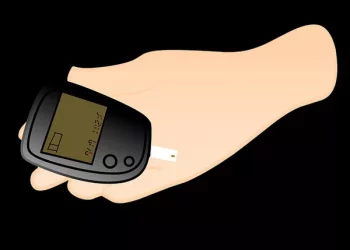The integration of effective data management in healthcare is making significant strides in the Solomon Islands, with the Ministry of Health and Medical Services (MHMS) recently unveiling a specialized DHIS2 module aimed at improving care for diabetic foot injuries. Supported by the World Health Organization (WHO), the system promises to streamline patient care and boost safety, reflecting a growing shift toward digital health solutions in the country.
The new system is designed to track patients undergoing diabetes-related surgeries at the National Referral Hospital (NRH). This initiative aligns with the MHMS and WHO’s broader efforts to combat non-communicable diseases through diabetes management, diabetic foot coaching, and quality improvement programs.
As part of the launch, a comprehensive workshop was held to train healthcare professionals within the Diabetes Unit Surgical Ward (DUSW) on how to effectively use the DHIS2 platform. This training will enable staff to enter patient data, access crucial health information, and make well-informed decisions to enhance patient outcomes. With this digital tool, healthcare workers can minimize delays and inefficiencies caused by redundant data entry.
Dr. Rooney Jagilly, Head of Surgery at NRH, emphasized the growing prevalence of diabetic foot injuries (DFI), which now occupy more than half of the hospital’s surgical beds. He highlighted that the number of DFI cases has risen steadily since the early 2000s, underscoring the need for a robust database to improve patient care. “Data is power,” Dr. Jagilly stated. “With accurate information, we can better inform patients about their condition and guide them toward better health outcomes.”
The DHIS2 module is part of the Solomon Islands’ ongoing digital health transformation, which aims to optimize health services and leverage technology to address critical public health issues. Mr. Vasco Carvalho, WHO Technical Officer for Health Information Systems, explained that the system offers a detailed record of each patient’s journey, from admission to discharge. This comprehensive data management system not only streamlines record-keeping but also enhances accuracy and supports timely clinical decisions.
Moreover, the new digital system plays a vital role in reducing diabetes-related amputations by strengthening care at the primary health level. By ensuring strong data tracking across the patient’s journey, the system facilitates more effective screening and management of diabetes and diabetic foot conditions at primary healthcare facilities.
Solomon Islands’ commitment to digital health was further underscored by MHMS Permanent Secretary Mrs. Pauline McNeil during a January workshop on the country’s digital health strategy. She stated, “Harnessing digital tools allows us to create a data-driven ecosystem that empowers healthcare providers and policymakers, enabling informed decision-making and more efficient use of resources to improve health outcomes.”
This DHIS2 digital health system represents a critical step in the Solomon Islands’ efforts to enhance its health services, ultimately improving the well-being of its population through innovative data management solutions.
Related topics:
American Diabetes Association Updates 2025 Standards of Care for Diabetes Management
Eating Out with Type 1 Diabetes: Mila Clarke’s Tips for Stress-Free Dining
Study Suggests Diabetes Medications Reduce Dementia Risk in Older Adults



























